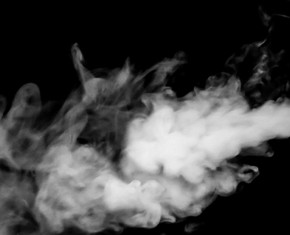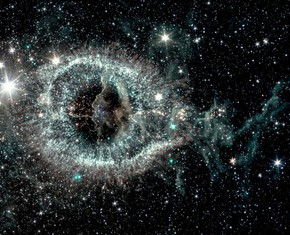The views expressed in our content reflect individual perspectives and do not represent the authoritative views of the Baha'i Faith.
Scientists generally agree that the universe is “fine-tuned” for life—that it offers a unique combination of factors which have allowed life to flourish.
But some scientists reject the idea that the fine-tuning of the universe implies the existence of any Creator:
Now, to refute God means refuting several claims that are all based on faith, not evidence …. [O]ur opponents … are going to argue first that one aspect of science that supports perhaps the belief in God is this notion that the universe is apparently fine-tuned for life. … That is a remarkable and, in fact, cosmic misunderstanding … – Lawrence Krauss, Intelligence Squared debate (emphasis added)
Previously, we looked at this statement from the Intelligence Squared debate called “Science Refutes God” to discuss how Dr. Krauss (representing the atheist viewpoint) called into question his opponents’ rationality. Now, let’s examine the “cosmic misunderstanding” Krauss mentions. Dr. Krauss and others have seized on the idea that the fine-tuning of the universe is a critical “proof” of the existence of God. In reality, it’s only part of a body of evidence that implies the existence of God, just as the light shining on the surface of the moon is part of the body of evidence that implies the existence of another light source.
Krauss continued his explanation:
… genetic variation among a population, combined with natural selection meant that you didn’t need supernatural shenanigans … all the diversity of life on earth could arise from a single life form, by natural law. … that’s where we’re at now as far as the understanding of the universe is concerned.
Now, our … opponents, I suspect, will argue the universe is equally fine-tuned for life … they will point out that certain fundamental parameters in nature, if they were different, we couldn’t exist. Or they may boldly assert that, in fact, certain of these parameters are so strange and unnatural that they must have been established with malice aforethought to ensure our existence. This too is an illusion. … We would be quite surprised to find ourselves living in a universe in which we couldn’t live. In fact, that might be evidence for God. (emphasis added)
An argument that Krauss is in jeopardy of making is that the theory of evolution explains the genesis of everything. It does not. The missing piece of the evolutionary puzzle is where that first single life form came from and what caused it to begin its evolution. Mere physical environment cannot account for some of the twists in evolution—especially the peculiar evolution of human beings. Indeed, were I on the opposing debate team, I’d point to evolution as one of the arguments for the existence of God.
Surely, I thought, there had to be more to Krauss’ argument. Saying something is an illusion is not the same as providing evidence that it is. See those last two sentences in Krauss’ statement? Keep those in mind as you read his next assertion.
But I want to point out that in fact the universe isn’t particularly fine-tuned or conducive to life. Most of the universe is rather inhospitable to life. And in fact—perhaps the biggest fine-tuning problem in my own field of cosmology … is that the energy of empty space is not zero.
Let’s unpack that. Dr. Krauss:
- Argues that Team B might invoke the universe being fine-tuned for life as evidence for God.
- Next argues that if it is not fine-tuned for life, life would be a miracle and, therefore, “might be evidence for God.”
- Then states that it is not fine-tuned for life, but “inhospitable to life.”
My surprise was two-fold: the statements are not only contradictory, but no one commented on this obvious fact.
Ironically, back when we had begun to realize that our lovely blue marble wasn’t the only one on the playground, atheist philosophers suggested that religion would be undone by the discovery of other planets with life. Hold that thought while I make two points: 1) I write science fiction for a living and 2) I believe absolutely that there is life on other planets in part because … wait for it … the sacred texts of my faith (written between 1844 and 1921) say there is, making that claim long before any empirical evidence presented itself:
The learned men, that have fixed at several thousand years the life of this earth, have failed, throughout the long period of their observation, to consider either the number or the age of the other planets. Consider, moreover, the manifold divergencies that have resulted from the theories propounded by these men. Know thou that every fixed star hath its own planets, and every planet its own creatures, whose number no man can compute. – Gleanings from the Writings of Baha’u’llah, p. 163.
In the debate, the atheist’s team took a sectarian doctrine as a proxy for all religious belief, then flipped the argument that life on other worlds would undo religion (an argument that’s still being made) to propose that the fabric of all faith would be undone if life is not found elsewhere. All bases are covered.
I’ve watched scientific consensus about life on other worlds develop in real time. When I was in college, scientists argued that the chances of finding a planet like Earth anywhere else in the universe were slim and none. Given the genesis of our understanding of celestial dynamics in just the last 30 years, I find this claim of an inhospitable universe odd. Now we continually discover planets in the “sweet spot” for life, and find the elements for life even in such inhospitable places as Mars and our moon. Given that, what sort of universe would Krauss consider “fine-tuned for life”?
The contention that “most of the universe is rather inhospitable to life” also assumes the speaker has knowledge of most or all of the universe. He doesn’t. No one does. It also assumes that we would recognize all forms of life if we saw them. A colleague once asked how someone would register a sunset if the only sense they possessed was hearing. If our way of measuring the energy of something is limited by our own senses, how can we presume to have measured it accurately?
The Baha’i teachings make this exact scientific point—that our powers of observation condition what we observe:
As to thy question whether the physical world is subject to any limitations, know thou that the comprehension of this matter dependeth upon the observer himself. In one sense, it is limited; in another, it is exalted beyond all limitations. – Ibid., p. 162.
Krauss makes the same point about the observer later in the debate, yet here proposes that our knowledge is complete enough to reliably assert something about “most of the universe.” That one of his opponents is a physicist of equal credibility does not seem to give him pause. I find that bemusing. When I encounter intelligent people whose conclusions differ from my own, it always gives me pause … and a desire to understand what has caused those differences.
You May Also Like
Comments

















https://drive.google.com/file/d/0ByblVJgMQHggT0ZRQzdKRS1YcXc/view?usp=sharing
and was wondering what you thought of it. In short, I am not sure if your post presents the proper understanding of the scientific picture, but at the same time with a few tweaks to get the proper understanding can be made actually consistent and raises some intriguing points I actually agree with.
https://drive.google.com/file/d/0ByblVJgMQHggXzF3ZHpZSmYtVFk/view?usp=sharing
They look for signs of water on Mars, for example, when they should be looking for the chemicals required to make photocopies - because "life as we know it" would be impossible without photocopies!